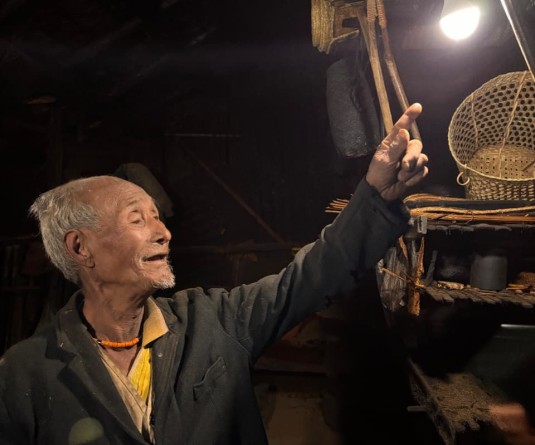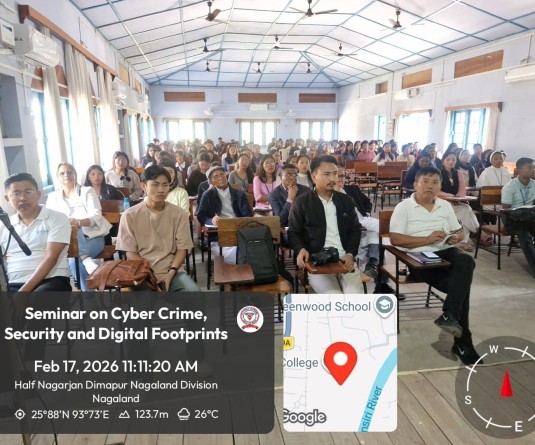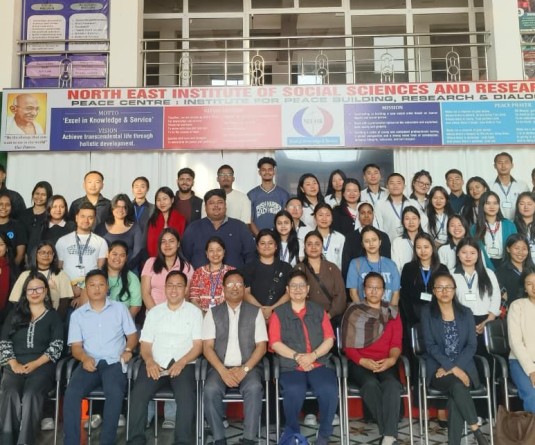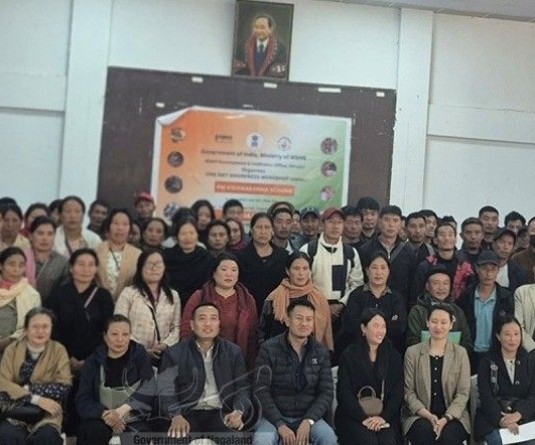Stakeholders in Nagaland's criminal justice system attend a state-level workshop on POCSO Act 2012 and NDPS Act 1985 organised by High Court Legal Services Committee, Kohima in collaboration with Dept of Law & Justice, Dept of Health & Family Welfare and Nagaland Police in Chümoukedima on April 27. (Morung Photo)
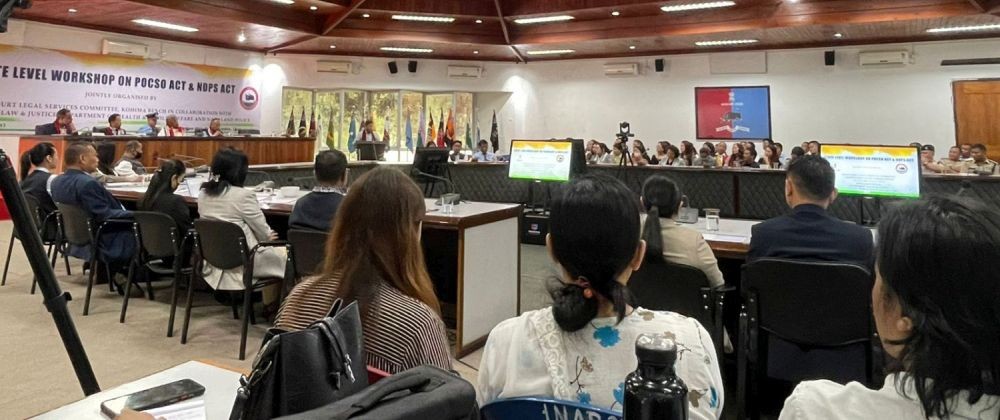
Morung Express News
Chümoukedima | April 28
Stakeholders in Nagaland's criminal justice system converged in Chümoukedima on April 27 to delve into the Protection of Children from Sexual Offences Act (POCSO), 2012 and the Narcotic Drugs and Psychotropic Substances Act (NDPS), 1985.
Judicial officers, public prosecutors, police agencies as well as medical practitioners from all over Nagaland, among others, attended the State-Level Workshop on POCSO and NDPS Acts.
Besides reorienting on the Acts itself, the workshop particularly focused on issues and challenges associated with practical implementation of the Acts, which can sometimes lead to conflicts between different parts of the criminal justice system.
Expectations and responsibilities of each stakeholder and collaborative efforts for overcoming prevailing issues and challenges were also highlighted prominently during the workshop.
In the session on POCSO, Justice (Retd) Mir Alfaz Ali, Director, Judicial Academy, Assam delved into two important aspects of the Act – application and challenges of the ‘Presumption of Guilt’ under Section 29 and ‘Presumption of culpable mental state’ under Section 30.
Among others, Justice Ali highlighted various mechanisms through which a judge dealing could tackle these presumptions. “Court should be sensitive, not mechanical in dealing with POCSO cases,” he advised.
Dealing on ‘Challenges and Solutions’ to implementation of POCSO Act, Dr Shaibya Saldanha, co-founder of Enfold Trust, consultant gynaecologist, and child protection trainer, focused on the responsibility of each stakeholder, particularly medical practitioners, in dealing with POCSO cases and collecting evidence.
In doing so, she highlighted on various steps a doctor should undertake when dealing with a sexual assault cases, staring from therapy to legal aspects, and bringing the victim ‘into the system,’ ensuring confidentiality as well as confidence in the system.
Dr Saldanha also underscored the need for medical practitioners to develop a ‘high index of suspicion’ when dealing with medical cases involving children.
For doctors, the trainer also recommended familiarising with the “Guidelines & Protocols Medico-Legal Care for Survivors/Victims of Sexual Violence” issued by the Union Ministry of Health and Family welfare.
She also shared on various ways on which a child can be victimised, including ‘grooming’ and dwelt on ‘safe and unsafe touch.’
To this end, she called the need for sensitisation on sexual offences at schools, hospitals, village community centres etc.
Dr Saldanha pointed out the challenges faced by medical practitioners when giving evidence or being a witness in court. These challenges, which at times are personal unrelated with the case at hand, often discourage practitioners from participating, she added.
Drugs smuggled mostly from Myanmar: DGP Sharma
Meanwhile, Director General of Police (DGP) Rupin Sharma highlighted on issues and challenges facing the State in implementing the NDPS Act.
Giving on overview of smuggling of drugs into the State, he pointed out that it is usually routed from Myanmar mostly via Manipur and at times through Mizoram or ‘couriered’ from China.
There are usually around 10 suppliers in Myanmar and over 100 individuals at the first transit point in the border, he informed.
Thereafter, there could be multiple combinations of the drugs changing hands but often links could be traced to Myanmar, he added.
The DGP thus addressed the various implementation challenges faced by police on the ground, including those encountered when dealing with the legal system after a seizure, arrest, or case registration.
In this regard, he urged in personal capacity to the legal officers present to carefully evaluate police investigations, looking beyond face value and focusing on the trail of evidence presented. This evidence could include mobile phone interactions, financial transactions, witness accounts, or carrier records, he said.
As a police administrator, he also asserted that Nagaland has no “history of planting evidence” and stated that while is not always the physical seizure; police undertake and collect ‘decent evidence.’
Sharma also stated that while he is not against “default bail’ but urged for giving enough time to police for responding to bail application.
He also shared that many applicants ‘jumps bail’ and often become untraceable and called for putting a place in system, including allowing police to verify an application.
Meanwhile, SP Moitra District & Sessions Judge (Retired) & Faculty Judicial Academy, Assam dealt with other aspects of the NPDS Act including Bail in small, intermediate & commercial quantity and Bail Sec 37, Seizure, Conscious Possession, understanding of Sec 41, 42 & 43, Probation of Offenders Act, 1958 & other reformatory measures under NDPS with special reference to Mohanlal Judgment and so on. The workshop also included interaction on various topics presented.


